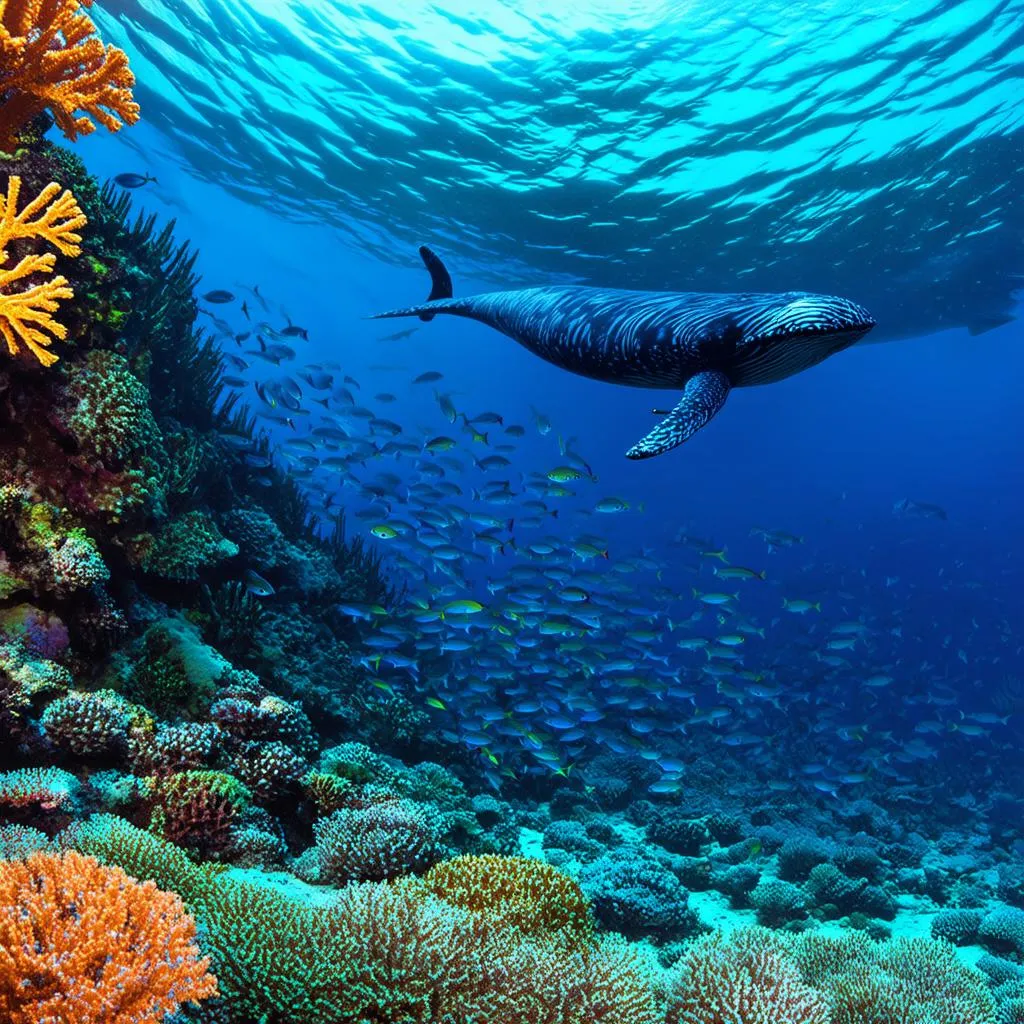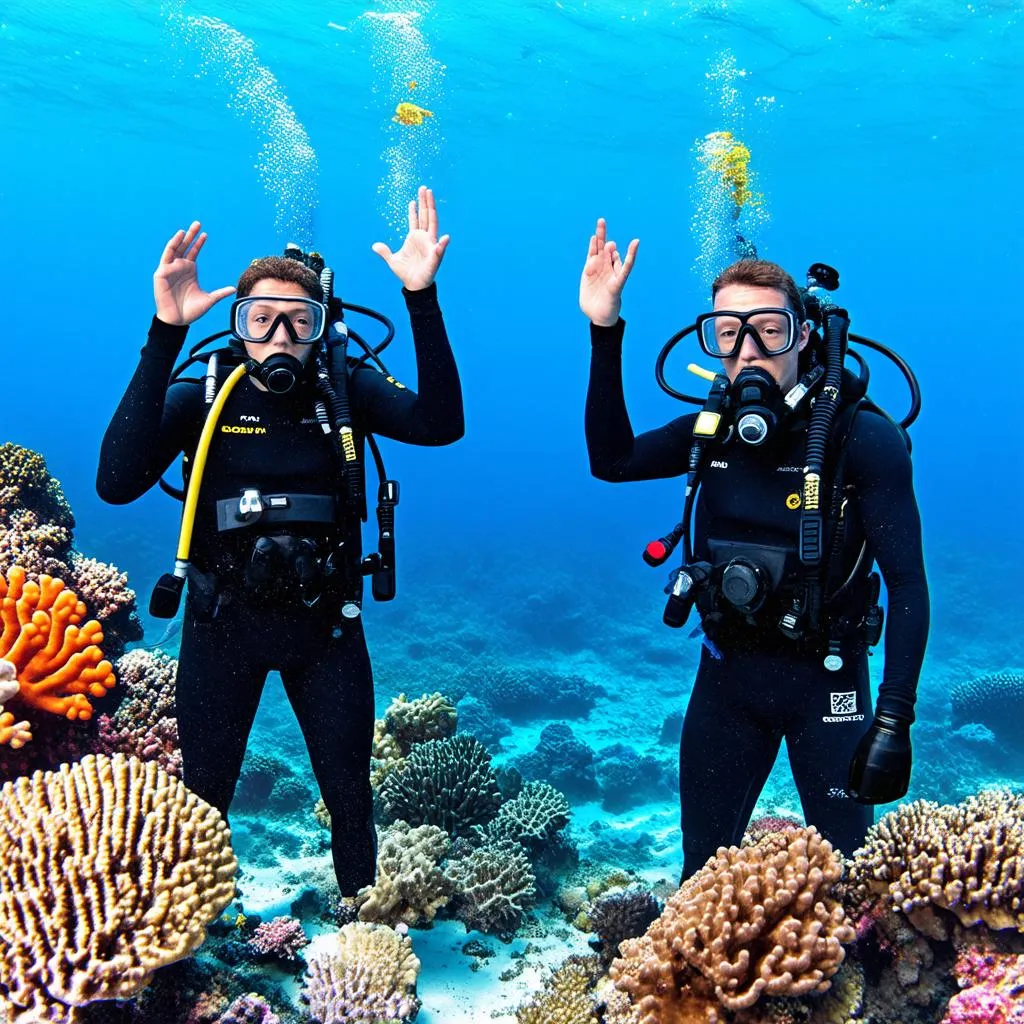Have you ever wondered what it’s like to hear underwater? Maybe you’ve dived into a pool and noticed how different things sound beneath the surface. It turns out the world of underwater acoustics is quite fascinating. Let’s dive in (pun intended!) and explore the science of sound in water.
Yes, Sound Travels Through Water, But Differently!
While you might picture yourself chatting with fish if you could breathe underwater, the reality is a bit more complex. Sound does travel through water, but it behaves differently than it does in air.
Here’s why:
- Density: Water is much denser than air. This density allows sound waves to travel faster and further in water than they do in the open air.
- Speed: The speed of sound in water is about four times faster than in air, clocking in at around 1,500 meters per second.
- Frequency: The way we perceive sound underwater also changes. Higher-pitched sounds get absorbed more quickly, making lower-frequency sounds more audible over long distances.
Exploring the Underwater Soundscape
The underwater world is full of unique sounds:
- Marine Life: Whales are famous for their complex songs, which can travel for miles underwater. Dolphins use echolocation, a series of clicks and whistles, to navigate and hunt.
- Geological Activity: Underwater volcanoes and earthquakes create powerful sound waves that can be detected across vast distances.
- Human Activity: From the whirring of boat engines to the pinging of sonar, human activities contribute to the underwater soundscape, sometimes with negative impacts on marine life.
Imagine snorkeling near Australia’s Great Barrier Reef. You might hear the crackle of snapping shrimp, the whoosh of a passing fish, or the haunting song of a humpback whale echoing through the water. It’s a truly mesmerizing experience.
The Science Behind It: Sound Waves in Action
Sound travels in waves, whether it’s through air, water, or even solids. These waves are vibrations that cause pressure changes in the medium they are traveling through.
Think of dropping a pebble in a still pond. You see ripples spread out from the point of impact. Sound works similarly. When you speak underwater, your vocal cords vibrate, creating pressure waves that travel through the water to reach a listener’s ears.
Applications of Underwater Sound
Our understanding of how sound travels through water has led to some incredible applications:
- Sonar: Used by submarines and ships, sonar relies on sound waves to detect objects and map the ocean floor.
- Marine Research: Scientists use underwater microphones (hydrophones) to study marine life, track migrations, and monitor ocean noise pollution.
- Underwater Communication: Divers use specialized equipment to communicate underwater, as sound is a more effective way to transmit information than hand signals in murky water.
 Underwater Soundscape
Underwater Soundscape
Planning Your Underwater Adventure?
Traveling to a coastal destination? Consider these points for an immersive sonic experience:
- Snorkeling or Diving: These activities allow you to hear the underwater soundscape firsthand.
- Whale Watching Tours: Listen to the magnificent songs of whales in their natural habitat.
- Respectful Travel: Be mindful of noise pollution and choose eco-friendly tour operators to minimize your impact on marine life.
FAQs About Sound and Water
Can fish hear? Yes, fish have ears and can hear sounds in the water. They rely on sound for communication, finding mates, and detecting predators.
Why does my voice sound different underwater? Our voices sound different underwater because the water changes the way sound waves vibrate. Additionally, our skulls also vibrate when we speak, and this vibration is different underwater, further altering the sound we hear.
How deep can sound travel in water? The depth sound can travel in water depends on factors like frequency, temperature, and salinity. Lower-frequency sounds can travel thousands of kilometers in the ocean.
 Scuba Divers Communicating
Scuba Divers Communicating
Exploring the World, Above and Below
Whether you’re fascinated by marine life, curious about the physics of sound, or simply love the peacefulness of being underwater, there’s a whole world of acoustic wonder waiting to be explored.
Want to learn more about traveling to exotic destinations with unique soundscapes? Check out our other articles on Travelcar.edu.vn. From the bustling streets of Hanoi to the tranquil beaches of Phu Quoc, we’ve got you covered.
And remember, as Jacques Cousteau once said, “The sea, once it casts its spell, holds one in its net of wonder forever.”
What are your thoughts on the magic of underwater sound? Share your comments below!